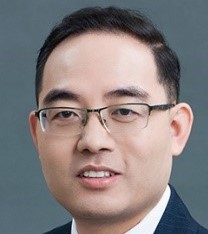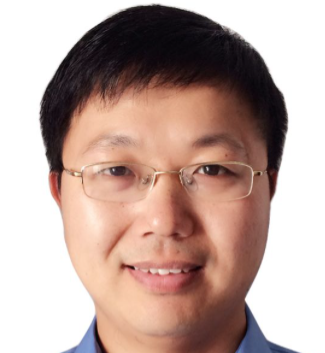IEEE Services 2020 Plenary Events
Software Service Engineering and Its Ecosystem Evolution
| Title: | Software Service Engineering and Its Ecosystem Evolution |
| Date/Time: | Tuesday October 20, 14:40-16:00 UTC |
| Summary: | As software services become ubiquitous in all industry domains and markets, agility- ability to quickly responding to changes, fast time to market, security, as well as cost reduction becomes the dominant constraints. Emerging application areas, such as intelligent medical applications, smart cities, cyber manufacturing and intelligent resources/energy management requires the development of services with self-awareness, self-adaption or auto-healing behaviors, with low human intervention. At the same time, the advances in artificial intelligence and machine learning techniques can be exploited to empower software and service engineers with intelligent software development tools and technologies. The novel software development and delivery practices (e.g., DevOps, DecSecOps, and more recently, AIOps, and ModelOps) and their related ecosystems are now becoming mainstream techniques. But are they enough? And how easily can their potential be exploited in big companies and in SMEs? The panelists will discuss new developments and future challenges in this area from their perspective, by addressing the following issues (as well as others raised by the audience)
|
| Panel Chair: |  Elena Ferrari, University of Insubria Elena Ferrari, University of InsubriaElena Ferrari is a full professor of Computer Science at the University of Insubria (Italy), where she leads the STRICT SociaLab. She received her Ph.D and M.Sc. degree in Computer Science from the University of Milano (Italy). Her research interests are in the broad area of cybersecurity, privacy, and trust. Current research includes security and privacy for Big Data and Iot, access control, machine learning for cybersecurity, risk analysis, blockchain, and secure social media. Prof. Ferrari has published several books and more than 240 papers in international journals and conference proceedings. She has received several awards, including the 2009 IEEE Technical Achievement Award, the ACM CODASPY Research Award, the ACM SACMAT 10 Year Test of Time Award, an IBM Faculty Award, and a Google Research Award. She is an ACM and IEEE Fellow. Prof. Ferrari currently serves as associate editor in chief of IEEE Internet Computing. She is associate editor for the ACM Transactions on Data Science, IEEE Transactions on Services Computing, Data Science and Engineering, and the International Journal of Cooperative Information Systems. She is the chair of the steering committee of the ACM Symposium on Access Control Models and Technologies and has been the PC chair of several major conferences in the data management and security/privacy fields. She has also repeatedly served on the program committees of all major data management conferences. Prof. Ferrari’s has led several research projects in the field of cybersecurity and privacy, which have been funded by several companies and institutions (e.g., EU Commission, Google, IBM, EOARD/AFOSR, and the Italian Ministry for University and Research). In 2018, she has been named one of the 50 most influential Italian women in tech. More details can be found at http://dawsec.dicom.uninsubria.it/elena.ferrari/ . |
| Panelist: |  Dinesh C. Verma, IBM TJ Watson Research Center Dinesh C. Verma, IBM TJ Watson Research CenterDinesh C. Verma (IBM Fellow, Fellow of Royal Academy of Engineering, IEEE Fellow) leads the Distributed AI team at IBM T J Watson Research Center, Yorktown Heights, New York. His current focus of research is AI enabled applications for 5G Edge environments and AI-enabled management of computer and telecommunications networks. He has more than 25 years of professional experience after his doctoral degree from UC Berkeley. He has authored ten books, 150+ technical papers and been granted 185+ U.S. patents. He has chaired/vice-chaired IEEE technical committee on computer communications, as well as IEEE Internet technical committee. He has served on various program committees, editorial boards and managed large international multi-institutional government programs. He is a member of the IBM Academy of Technology, has been recognized multiple times as an IBM Master Inventor, won several IBM technical awards, including designation as an IBM Fellow, the highest technical recognition within the company. He has made seminal contributions to several areas in computer networks, including Quality of Service management in computer networks and Policy based Networking. He has contributed to several IBM products and service engagements including significant contributions to server networking stack, network management products and customer projects related to cellular network analytics. Currently, Dinesh is responsible for defining the IBM strategy is the area of edge computing for IBM world-wide research. He is the Principal Investigator for the International Technology Alliance in Distributed Analytics, a group of 15 academic, industrial and government research organizations in U.S. and UK looking at the challenges in analytics and cognitive computing tasks in a federated multi-organization environment. More details about Dinesh can be seen at https://researcher.watson.ibm.com/researcher/view.php?person=us-dverma |
| Panelist: |  Xiao Xue, Tianjin University Xiao Xue, Tianjin UniversityXiao Xue is a professor with College of Intelligence and Computing, Tianjin University. His research interests include service computing, swarm intelligence, and computational experiments. In recent years, he has published a series of articles about the evolution analysis and intervention of service ecosystem, which has attracted widespread attention. In addition, he has just published a monograph “Computational Experimental Methods for Complex Systems” in China Science Publishing Press, which is considered by experts in the field to be the first book to systematically discuss computational experimental methods. Because of the above contribution, he has received two second class prizes of Provincial Natural Science Award (ranked first), and one first class prize of provincial natural science outstanding academic book (single author). Until now, he has successively won the honorary titles of Provincial Outstanding Youth in Science and Technology Innovation, Provincial Science and Technology Innovation Talent, Provincial Academic Leader, Provincial Outstanding Master Thesis Instructor, etc. Currently, he is a member of IEEE, CCF, ACM; member of the Service Computing Committee; member of the Parallel Intelligence Committee; expert of the National Natural Science Foundation of China; TII, TSC, TKDE, IJPR, JIT, JNCA, SOCA, IEEE IoT and other international journal reviewers. He has been workshop Co-chair of ICSOC 2019, Publication Chair of ICSS 2019, PC member of ICWS 2018, 2019, 2020. |
| Panelist: |  Xin Peng, Fudan University Xin Peng, Fudan UniversityXin Peng is Professor and deputy dean of School of Computer Science, at Fudan University, China. He received his PhD in Computer Science from Fudan University in 2006. He is deputy director of CCF (China Computer Federation) Technical Committee on Software Engineering and steering committee member of ICSME (International Conference on Software Maintenance and Evolution). He is Co-Editor-in-Chief of Journal of Software: Evolution and Process and on the editorial boards of Empirical Software Engineering and Chinese Journal of Software. He has been Program Co-Chair of ICSR 2019, Local Chair of ICSME 2017, Journal First Co-Chair of ASE 2019, RENE Track Program Co-Chair of SCAM 2019, Industry Track Program Co-Chair of ICPC 2020. He is or has been on the program committees of reputable conferences in the area of software engineering (e.g., ICSE, FSE, ASE, ICSME, SANER, ICPC). He leads the CodeWisdom Team at Fudan University, which is targeting at developing intelligent software engineering techniques and tools for software development, maintenance, and operation. His research focuses on three aspects: software analytics and big data analysis for software development; intelligent software development by using AI technologies such as deep learning and knowledge graph; intelligent software technologies in mobile and cloud computing, including development and operation of microservice systems and situational composition of ubiquitous services. His work won the Best Paper Award of ICSM 2011, the ACM SIGSOFT Distinguished Paper Award of ASE 2018, the IEEE TCSE Distinguished Paper Award of ICSME 2018 and ICSME 2019, and IEEE Transactions on Software Engineering Best Paper award for 2018. |
| Panelist: |  Jia Zhang, Southern Methodist University Jia Zhang, Southern Methodist University Jia Zhang is the Cruse C. and Marjorie F. Calahan Centennial Chair in Engineering, Professor of Department of Computer Science at Southern Methodist University. Her research interests emphasize the application of machine learning and information retrieval methods to tackle data science infrastructure problems, with a recent focus on scientific workflows, provenance mining, software discovery, knowledge graph, and interdisciplinary applications of all of these interests in the area of earth science. She has served as PI on grants worth over $5 Million. Dr. Zhang has co-authored one textbook "Services Computing" and has published over 170 refereed journal papers, book chapters, and conference papers. Her research won two Best Paper awards at IEEE SCC (2011, 2017), and three Best Student Paper awards at IEEE ICWS (2014, 2018) and IEEE ICCC (2018). She also holds three US patents. Dr. Zhang has served as an associated editor of the IEEE TSC since 2008. She serves as PC Chair for IEEE SCC 2020. She received the first IEEE TCSVC Outstanding Service Award in 2016. Dr. Zhang holds a Ph.D. in Computer Science from the University of Illinois at Chicago. |